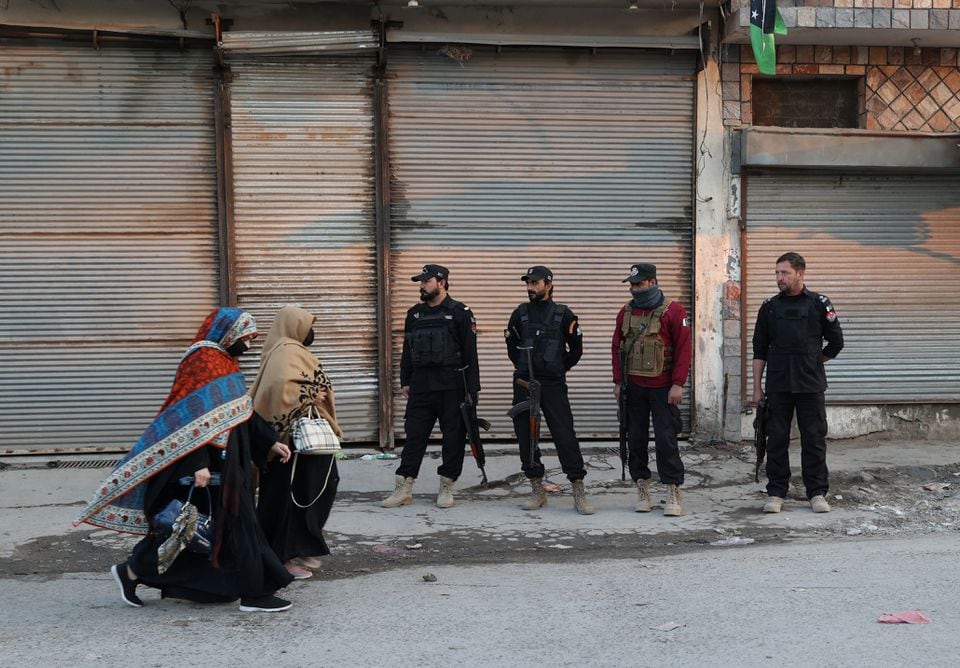Pakistan’s general election was overshadowed by violence as at least nine individuals, including two children, lost their lives in militant attacks on Thursday.
The country, grappling with security concerns, suspended mobile phone services and closed select land borders in a bid to maintain law and order during the electoral process.
The Interior Ministry enforced these security measures following devastating explosions near electoral candidates’ offices in Balochistan province on Wednesday, claiming the lives of at least 26 people. The Islamic State later claimed responsibility for these attacks.
Despite the deployment of thousands of troops across polling stations nationwide, incidents of violence persisted. Five policemen fell victim to a bomb blast and gunfire during a patrol in Dera Ismail Khan district, while another individual was killed in firing on a security forces vehicle in Tank.
In Balochistan, a civilian force soldier was fatally injured, and ten others sustained injuries in numerous grenade and improvised explosive device blasts. Tragically, two children perished in a blast outside a women’s polling station in the same region.
Candidate Mohsin Dawar, representing North Waziristan, reported to the Election Commission of Pakistan (ECP) that local “Taliban” had seized control of some polling stations in his constituency, intimidating both polling staff and locals. However, there has been no immediate confirmation from the election commission or security forces regarding these claims.
Despite security concerns and inclement weather conditions, long queues formed at polling stations hours before voting commenced. The nation faces not only security challenges but also profound economic turmoil and political polarization, leading many analysts to anticipate a lack of a clear winner in the election.
Unofficial initial results are expected shortly after polling stations close, with a more definitive outcome likely to emerge by early Friday.
The decision to suspend mobile networks drew criticism from opposition leaders, including Bilawal Bhutto Zardari of the Pakistan Peoples Party, who called for their immediate restoration. However, Chief Election Commissioner Sikandar Sultan Raja affirmed that the decision was made by law enforcement agencies in response to Wednesday’s violence.
Meanwhile, Imran Khan’s Pakistan Tehreek-e-Insaf (PTI) party urged people to remove passwords from personal WiFi accounts to facilitate internet access on election day. Nevertheless, the suspension of mobile services led to complaints from voters struggling to locate their polling stations due to the lack of internet connectivity.
As the nation awaits election results, former Prime Minister Nawaz Sharif emphasized the importance of securing a clear majority for effective governance, dismissing notions of a coalition government. The main competition is anticipated between candidates supported by Khan’s PTI and the Pakistan Muslim League of Sharif, with analysts speculating on the military’s influence in the election outcome.
With economic challenges looming large and the need for a new IMF bailout program imminent, the incoming government faces a daunting task ahead, particularly if the election does not yield a decisive majority.



